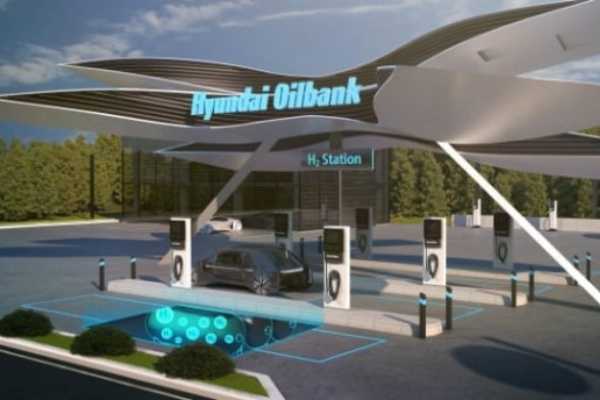Carbon neutrality
Hyundai Oilbank steps up eco-friendly white bio business
The oil refiner will accelerate its production of biodiesel, next-generation aviation biofuel and biochemicals
By May 11, 2022 (Gmt+09:00)
2
Min read
Most Read
LG Chem to sell water filter business to Glenwood PE for $692 million


Kyobo Life poised to buy Japan’s SBI Group-owned savings bank


KT&G eyes overseas M&A after rejecting activist fund's offer


StockX in merger talks with Naver’s online reseller Kream


Mirae Asset to be named Korea Post’s core real estate fund operator



Hyundai Oilbank Co., a South Korean petroleum and refinery company, is slated to tap into the white biotechnology market. The company has selected white bio as its future business, alongside blue hydrogen and eco-friendly chemicals and materials for sustainable growth. White bio uses living cells from plants, enzymes and microorganisms to produce energy with a lower carbon footprint.
On Wednesday, the oil refiner outlined its white bio business roadmap in three stages.
The first stage is to construct next-generation biodiesel manufacturing facilities with an annual capacity of 130,000 tons. The facilities will be set up by 2021 on a 10,000-square-foot site in Seosan City, about 100 kilometers southwest of Seoul, where Hyundai Oilbank’s Daesan Plant is located.
Also, the company will transfer some of the Daesan Plant facilities to hydrotreated vegetable oil (HVO) producers by 2024. HVO is a bio-based liquid fuel originating from vegetable and animal fats and is used as a substitute for regular diesel in Europe.
The second stage is to produce next-generation aviation biofuel by using HVO. The company is considering building biofuel plants in Indonesia as well as Korea for a better supply of raw materials.
The third stage is to develop a biochemical business by 2026. To create the biochemical supply chain, Hyundai Oilbank is planning to use byproducts from white bioenergy production. Also, it is aiming to form a white bio ecosystem reaching 1 million tons annually by 2030.
While most bioenergy sources come from food such as soybeans, corn and palm, Hyundai Oilbank is planning to use non-edible sources for the white bio business. Also, instead of using catalysts, it will employ a supercritical extraction method that uses high temperature and high pressure, both above their critical points, to reduce the generation of harmful substances.
“We will continuously grow the white bio business by converging our oil refining technology with cost competitiveness. We will work to raise the profits from the new businesses to 70% of our entire business profits by 2030,” Hyundai Oilbank President Chu Young-min said.
Hyundai Oilbank is accelerating its transformation into an eco-friendly company. Last December, the company announced it will produce eco-friendly materials for construction and paper with by-products of refining as it seeks carbon capture, utilization and storage (CCUS) businesses.
In the same month, the company said it will invest 400 billion won to build an eco-friendly power plant fueled with liquefied natural gas (LNG) and blue hydrogen. The plant is aimed to generate 230 tons of steam per hour and 290 megawatts of electricity with a target of commercial operation from 2025. It is set to burn 70% LNG and 30% blue hydrogen.
Write to Jeong-Min Nam at peux@hankyung.com
Jihyun Kim edited this article.
More to Read
-
 EnergyHyundai Oilbank to sell fuels to Hawaii in first term deal with US
EnergyHyundai Oilbank to sell fuels to Hawaii in first term deal with USDec 29, 2021 (Gmt+09:00)
1 Min read -
 Carbon neutralityHyundai Oilbank to build LNG-hydrogen power plant for $335 mn
Carbon neutralityHyundai Oilbank to build LNG-hydrogen power plant for $335 mnDec 22, 2021 (Gmt+09:00)
1 Min read -

-
 Mergers & AcquisitionsHyundai Oilbank attracts $20 million from Palantir ahead of IPO
Mergers & AcquisitionsHyundai Oilbank attracts $20 million from Palantir ahead of IPODec 09, 2021 (Gmt+09:00)
2 Min read -
 Carbon neutralityHyundai Oilbank to make building, paper materials with carbon
Carbon neutralityHyundai Oilbank to make building, paper materials with carbonDec 06, 2021 (Gmt+09:00)
3 Min read
Comment 0
LOG IN


